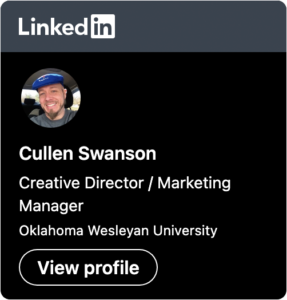Formal Education for Web and Graphic Design
I love the web design and graphic design industry — I really do. It started out as my “video game” and it became an addiction. I love fast-paced environments that change constantly, and where the process of learning new ways to do things never ends. I honesty never thought I’d make a good living doing it; it’s what I did (and still do) for fun.
Although there are many other qualified people to speak on this subject, I write this post from experience from what I have personally seen in this industry regarding education.
Innovated Media is contacted by dozens of graphic and web design students every year as they approach graduation looking to work for a web design or graphic design firm, and we get a lot of resume’s to look over. Over the years, I’ve found one thing in common with all of these students: they didn’t learn anything about web design, commercial graphic design, search engine optimization, or Internet marketing from their formal education. I’m serious — not a single redeeming ounce of knowledge that can be applied to a commercial web design project.
Formal education is meant to prepare you for a job, and I have yet to meet a single graphic artist or web designer that had applied any of the knowledge that they have in a commercial setting; they know it all in theory instead of in application. Graphic designers coming out of college should know how to:
1. Use Photoshop, Illustrator, and InDesign well.
2. Be able to do some commercial design work without working up 15 concepts until you finally tell them you can’t use their work.
Advice for New Graphic Designers
My advice for graphic designers coming out of school is to NOT ever apply for a job with the artwork and portfolio that you created for projects while you were in school unless it has a commercial application to it; drawings of faces and landscapes won’t get you a job. At least do some logo concepts or brochures for a fictitious companies that you made up. Employers want to know if you understand how graphic arts relate to a consumer market. Show them that you know how to do more than just use Photoshop…even though several designers that I’ve spoken to didn’t even learn Photoshop in school, which is retarded.
Advice for New Web Designers
My advice for aspiring web designers would be to take the initiative to learn CSS, PHP, Java, JQuery, and of course HTML. Subscribe to websitemagazine.com to find out what the new programming and design trends are, and new search engine algorithms that affect search engine placement. Website Magazine is the most widely circulated magazine that covers this industry more than any other publication with 47 monthly subscriptions alone arriving at Google’s headquarters each month.
Also, get a subscription to Lynda.com and learn how to use software platforms such as Dreamweaver, WordPress, Joomla, and Photoshop. Don’t become content with using one platform to develop your work in. Just because you are used to doing it one way doesn’t mean “your way” will be the most efficient or effective way to build a website 60 days from now. Technology simply moves too fast in this industry for you to become lazy.
I seriously doubt that your average formal education institute (aka college) will continually replace textbooks and curriculum when programming languages are updated or one becomes obsolete. I remember the first Photoshop class that I took. It was at a community college, and they were teaching us on Photoshop 7. Why weren’t they showing us creative suite which had come out 2 years prior to me taking the class?! In addition, you will learn many things that have been flavored by your instructor. How do you know the instructor is staying current on latest trends, algorithms, popular development platforms, and programming languages? Take the initiative instead and own the responsibility for learning on your own…whatever learning medium you choose.
And for God sakes don’t choose an inferior software package because you can’t afford Dreamweaver or Creative Suite. It will do you more harm in the long run to try to save a buck up front when you are getting started. Just last year we redesigned 3 or 4 websites that had been done in Microsoft Front Page only a year prior. Seriously?! No wonder the other web designer(s) lost the client’s business!
In Summary
Like many professions, graphic and web design is not something that you just decide to do because you think you’ll make a good living at it. The successful programmers, web developers, and graphic designers seem to have a love for the industry, along with some natural talent not just in the work itself, but an understanding of computers that many people would take a long time to learn. In other words, they just “get it.” If a computer doesn’t feel like an extension of who you are, pick a different profession.
So I ask this question: is formal education a good idea for graphic and web design? I say “no” it is not. When considering a new employee, I would take experience over education in this industry any day of the week. I don’t care if you never even finished high school. A strong portfolio speaks for itself.
Be sure to read a follow up article to this post called “Advice for Freelance Web and Graphic Designers.” It includes some basic things that web and graphic designers can do to help grow their freelance business that may seem common sense, but have proven over the years to be the backbone of Tulsa Web Design Firm’s success.












